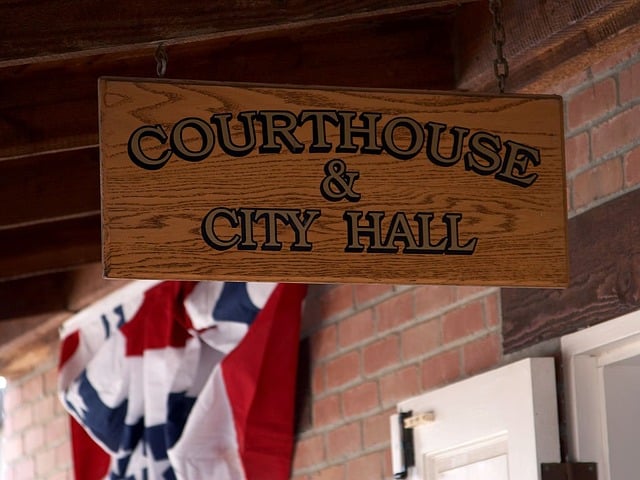In the UK, accurate court document translations are essential for ensuring fairness in legal proceedings with international elements. Strictly regulated by laws like Legal Aid Agency requirements and Public Law (Translation) Regulations 2010, professional translators preserve technical terms and contexts to minimize errors. Certified translations from reputable services specializing in legal documents, with proven experience and strict hiring standards, are vital for clear communication among parties involved in complex cases. Choosing the right service involves verifying qualifications, guarantees, and urgent request handling, while avoiding common pitfalls like assuming qualifications or neglecting quality assurance. Skilled translators facilitate fair trials and resolve cross-border conflicts, making UK court document translation services pivotal for accessible justice.
In the intricate legal landscape of the UK, accurate and certified court document translations play a pivotal role. This article delves into the significance of precise translations for navigating England and Wales’ legal system. We explore essential requirements, providing a step-by-step guide to obtaining certified translations.
From choosing reputable service providers to steering clear of common pitfalls, this comprehensive resource equips you with the knowledge to manage complex court document translation projects successfully. Discover real-world case studies, highlighting the impact of expert UK translation services in legal proceedings.
- Understanding the Importance of Accurate Court Document Translations in the UK
- Legal Requirements and Regulations for Certified Translations in England and Wales
- The Process of Obtaining Certified Court Document Translations: Step-by-Step Guide
- Choosing the Right Translation Service Provider for Your Legal Needs
- Common Mistakes to Avoid When Dealing with Court Document Translations
- Case Studies: Successful Court Document Translation Projects in the UK
Understanding the Importance of Accurate Court Document Translations in the UK

In the UK, accurate court document translations are of paramount importance to ensure justice and fairness in legal proceedings. With an increasing number of cases involving international elements, the need for reliable translation services has become more critical than ever. Court documents, including witness statements, contracts, and legal briefs, must be translated with precision to maintain their integrity and meaning. Any errors or misunderstandings can have significant consequences, potentially leading to delays, misrepresentations, or even adverse outcomes in court.
Professional court document translations in the UK are essential for ensuring that all parties involved—be it individuals, businesses, or legal organisations—receive clear and accurate information. These translation services employ qualified linguists who possess a deep understanding of both the source and target languages, as well as legal terminology. This expertise guarantees that technical terms and nuanced contexts are preserved, facilitating seamless communication across linguistic barriers in the legal domain.
Legal Requirements and Regulations for Certified Translations in England and Wales

In England and Wales, the legal landscape surrounding court document translations is strictly regulated to ensure accuracy and authenticity. When it comes to certified translations, specifically for court documents, there are stringent requirements set by the law. These regulations are in place to maintain the integrity of legal proceedings, ensuring that all documents are translated accurately and according to specific standards.
Court document UK translation services must adhere to the Legal Aid Agency’s guidelines and meet the criteria outlined in the Public Law (Translation) Regulations 2010. This includes proficiency in both source and target languages, as well as a deep understanding of legal terminology. Professional translators are required to provide an accurate and faithful rendering of the original document while also certifying its authenticity under penalty of perjury.
The Process of Obtaining Certified Court Document Translations: Step-by-Step Guide

Obtaining certified court document translations in the UK involves a meticulous process designed to ensure accuracy and legal validity. Here’s a step-by-step guide:
1. Identify Your Document Needs: Start by gathering all relevant court documents that require translation. These could include warrants, judgments, depositions, or any other legal papers. Ensure they are complete and unamended in their original language.
2. Choose a Reputable Translation Service: Select a UK-based translation company specializing in legal document translations. Look for credentials such as membership in professional translation associations and accreditation from recognized bodies like the Institute of Translation & Interpreting (ITI) or the Association for Language Studies (ALS).
3. Prepare Your Documents: Submit your court documents along with any specific instructions or formatting requirements. The translation service provider will then review them to ensure they understand the context and legal terminology used.
4. Select Target Languages: Identify the languages into which you need the documents translated. Common choices for UK-based translations include English (for other Commonwealth countries), European languages, and others based on your case’s requirements.
5. Receive Quotes and Choose a Translator: The translation service will provide quotes based on the volume, complexity, and turnaround time of your project. Review proposals carefully and select a translator with expertise in legal documentation and the specific court system involved.
6. Proofreading and Certification: Once translated, the documents undergo rigorous proofreading to ensure accuracy. Following this, a qualified professional (often a lawyer or notary public) will certify the translations, making them admissible as official court documents.
Choosing the Right Translation Service Provider for Your Legal Needs

When it comes to certified court document translations in the UK, selecting the right service provider is paramount. Legal proceedings often hinge on precise and accurate translations, making this a critical decision. Look for providers with expertise in legal translation services, preferably with experience handling court documents. Ensure they possess professional qualifications, such as membership in relevant translation associations or specific legal translation certifications.
Reputation and reliability are key. Check reviews from previous clients to gauge their performance and attention to detail. Many reputable firms offer a guarantee for their work, demonstrating confidence in the quality of their translations. Additionally, consider their turnaround times and ability to handle urgent requests, as legal matters often have stringent deadlines.
Common Mistakes to Avoid When Dealing with Court Document Translations

When dealing with court document translations in the UK, it’s crucial to be aware of common mistakes that can lead to delays, inaccuracies, and legal complications. One of the biggest blunders is assuming that any translator can handle such sensitive material. Court documents require specialists who are not only linguistically proficient but also possess legal expertise, understanding complex terminology and procedures specific to the UK justice system.
Another mistake is neglecting quality assurance processes. Using unvetted translators or failing to proofread can result in errors, typos, or even cultural misunderstandings that could compromise the integrity of your case. Always opt for reputable court document translation services with rigorous hiring standards and comprehensive quality control measures. Ensure they follow industry best practices, use specialized terminology databases, and offer native-speaker reviews to deliver accurate and reliable translations.
Case Studies: Successful Court Document Translation Projects in the UK

In the complex landscape of legal proceedings, accurate and certified court document translations play a pivotal role in the UK justice system. These projects often involve navigating intricate terminologies and cultural nuances to ensure every detail is preserved. Case studies highlight successful translation initiatives where specialized services made a tangible difference. For instance, a recent case involved translating medical records for a criminal trial, requiring precise interpretation of complex medical jargon. The translation team’s expertise ensured the documents were not only linguistically correct but also culturally adapted, enhancing the court’s understanding of the evidence.
Another notable project focused on translating legal contracts for an international business dispute. The challenge lay in harmonizing different legal systems’ terminology while maintaining strict confidentiality. A reputable UK-based translation service rose to the occasion, employing linguists with legal backgrounds and a deep understanding of both common law and civil law frameworks. This meticulous approach resulted in seamless communication between all parties involved, demonstrating the crucial role that skilled court document translation services play in facilitating fair and efficient justice in the UK.
When dealing with legal matters in the UK, precise and certified court document translations are indispensable. This article has explored the significance of accurate translations within the English and Welsh legal framework, outlining the steps to obtain these services effectively. By following the provided guide and choosing a reputable translation service, individuals and organisations can ensure their court documents are handled with expertise and compliance. Avoiding common pitfalls will further safeguard the integrity of legal processes, making professional translation services a vital asset in navigating the UK’s complex legal landscape.
